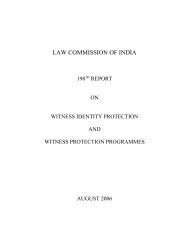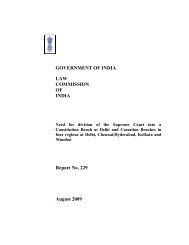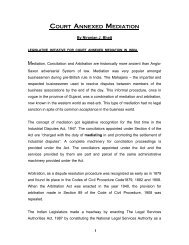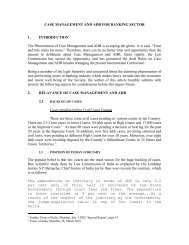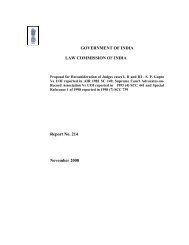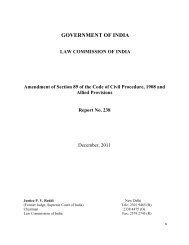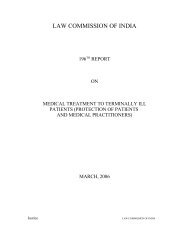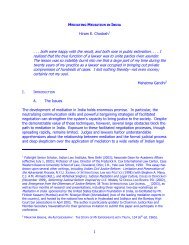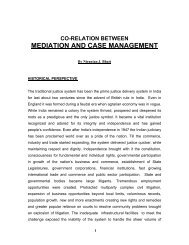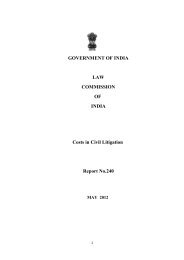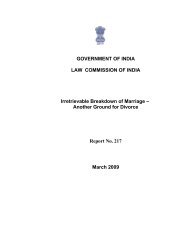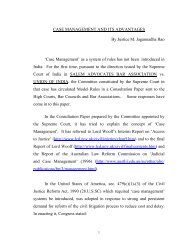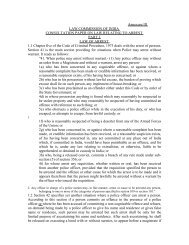The Legal Education - Law Commission of India
The Legal Education - Law Commission of India
The Legal Education - Law Commission of India
Create successful ePaper yourself
Turn your PDF publications into a flip-book with our unique Google optimized e-Paper software.
92Humanities must also be added to social sciences. ‘Students’, Pr<strong>of</strong>. Franksaid must be exposed to“the great literary artists” whose “poetic insights…. concern…. theparticular, the unique”and these goals too will have to be accomplished in the legal clinic.9.7 Mr. Stephen Nathanson in his ‘Developing <strong>Legal</strong> Problem SolvingSkills’ (1994) Vol. 44 Journal <strong>of</strong> <strong>Legal</strong> <strong>Education</strong> (p. 215) says thatteachers should synthesize “general problem-solving skills and contextspecificknowledge”.9.8 In 1979, Russel Stewart, in Australia, said that teaching legalproblem-solving skills should be the primary goal <strong>of</strong> pr<strong>of</strong>essional legaleducation. In 1984, in America, Anthony G. Amsterdam predicted that bythe 21 st century, legal education would have shifted its focus from casereading, doctrinal analysis and legal reasoning to a broader spectrum <strong>of</strong>practical skills, including problem solving skills. In 1991, in England, aresearch study by Kim Economides and Jeff Small listed the main tasks andskills and stated that pr<strong>of</strong>essional legal training should address problemsolvingfigures prominently among them. In 1992, the American BarAssociation’s Mac Crate Report identified problem-solving as the mostfundamental <strong>of</strong> all legal skills.9.9 A curriculum design has to be made, theory and practice must be puttogether, a problem-data bank must be generated and circulated to all lawschools.



